

By removing inefficient and unnecessary repetition we focus on what really matters
Know Where You Stand – Our intelligent rating system quickly identifies your current language ability, so you start learning at the perfect level.
Learn the Right Words, Right Now – Using your rating, we guide you to master the most useful words tailored to your language journey.
Connect with the Language – With your expanded vocabulary, dive into native media and experience the language the way it’s meant to be heard and read.
With just the right amount of features LinkKing is intuitive and easy to use while at the same time useful and extremely effective
Create lasting links between words
Optimize material accoding to your level
Smart, structured, conditional, spaced repetition

Challenge your friends to beat your rating
Study multiple languages at the same time
Set personal daily goals and adjust theme colors
LinkKing was inspired by my own language learning journey. After completing the Portuguese course on Duolingo, I was still far from fluent. I wasn’t able to read books or follow multiway conversations. I realized what was really holding me back was my limited vocabulary. I worked with a basic version of this application in a spreadsheet for about a year and made huge progress. It was so effective that I felt I had to share this method with the world.
We believe that expanding a student’s vocabulary is the most important, most efficient, and, unfortunately, most neglected aspect of language learning.
If a student understood every word in a language, they could read a book. It might take time but by the end of that process, they would have gained a much deeper understanding of the grammar and structure of the language. On the other hand, if a student had excellent grammar but a very limited vocabulary (as is often the case), the same book would still be inaccessible.
Focusing on vocabulary is also highly efficient. Most of the words in any given sentence are extremely common (e.g., “he,” “she,” “it,” “the”), so we avoid unnecessary repetition. With modern technologies, we can easily identify and exclude material the student already knows, enabling them to focus on learning new words quickly and effectively.
Despite its importance, rapid vocabulary expansion is often overlooked. Excellent resources exist for beginner learners, focusing on grammar and foundational skills, but there are few tools designed specifically for intermediate or advanced learners to accelerate vocabulary growth.
Understanding a large number of words is far more important than being able to use a lot of words. When speaking, you can often find different ways to say the same thing and still get your point across. However, the greatest challenge as a language learner is in multiway conversations where you can’t interrupt and ask for clarification—you need to understand the exact words being used.
Fortunately, even if we only study by testing ourselves with words presented in the target language, we naturally remember those words in the reverse direction as well, albeit with slightly less proficiency.
The performance rating is based on the Elo rating system, famously used in chess. Your rating increases when you correctly learn new words and decreases when you get them wrong. The tougher the word, the more your rating increases—or the less it decreases. The Elo system not only fosters a sense of competition but also ensures that you’re matched with words appropriate for your level. Check out our blog post here to learn more!
English, Spanish, French, German, Italian, Portuguese
Arabic (ar), Bangla (bn), Bosnian (bs), Bulgarian (bg), Catalan (ca), Chinese Simplified (zh-Hans), Chinese Traditional (zh-Hant), Croatian (hr), Czech (cs), Danish (da), Dutch (nl), English (en), Finnish (fi), French (fr), German (de), Greek (el), Haitian Creole (ht), Hebrew (he), Hindi (hi), Hmong Daw (mww), Hungarian (hu), Icelandic (is), Indonesian (id), Italian (it), Japanese (ja), Korean (ko), Latvian (lv), Lithuanian (lt), Malay (ms), Maltese (mt), Norwegian Bokmål (nb), Polish (pl), Portuguese (Brazil) (pt), Romanian (ro), Russian (ru), Serbian (Latin) (sr-Latn), Slovak (sk), Slovenian (sl), Spanish (es), Swahili (sw), Swedish (sv), Tamil (ta), Thai (th), Turkish (tr), Ukrainian (uk), Urdu (ur), Vietnamese (vi), Welsh (cy)
A lemma is the base form or dictionary form of a word. It’s the version of the word you would typically look up in a dictionary. For example, in English, the word “run” is the lemma for other forms like “running,” “ran,” and “runs.”
In Link-King, we focus on lemmas because they are the key to understanding the broader family of words you’ll encounter. Once you learn a lemma, you can easily recognize its variations in context, making it easier to read, write, and communicate in your target language.
